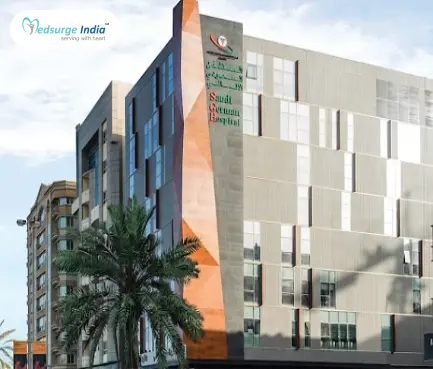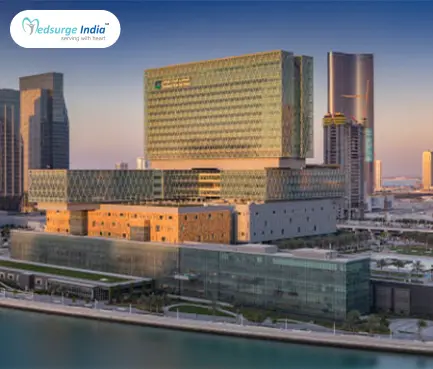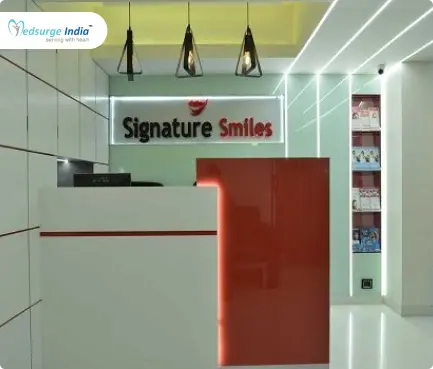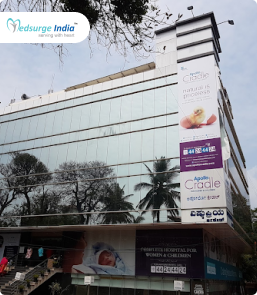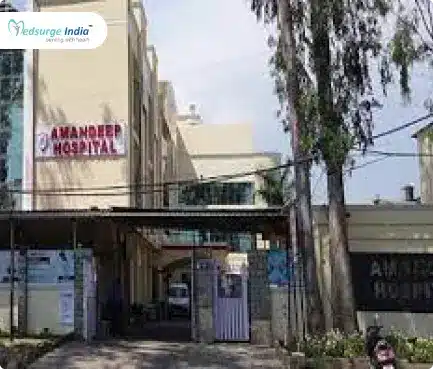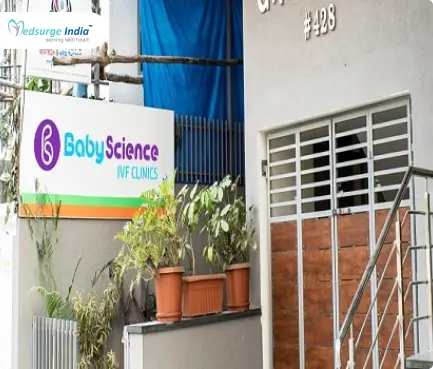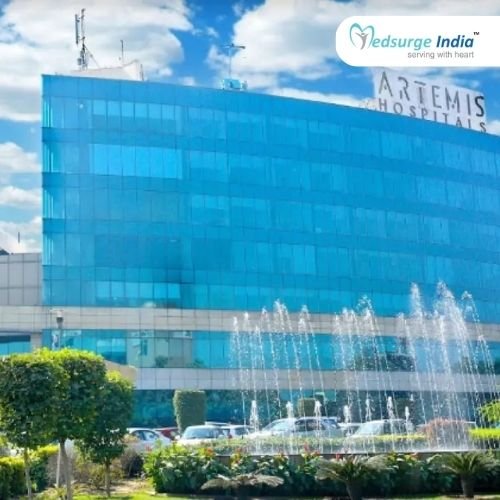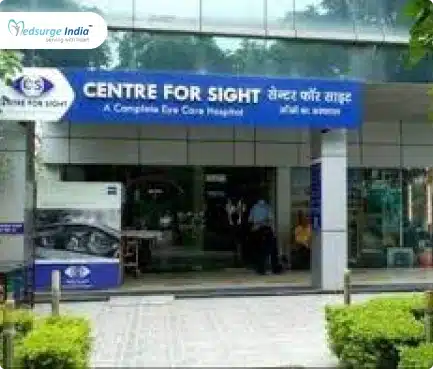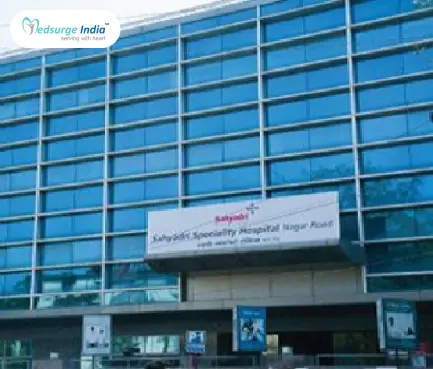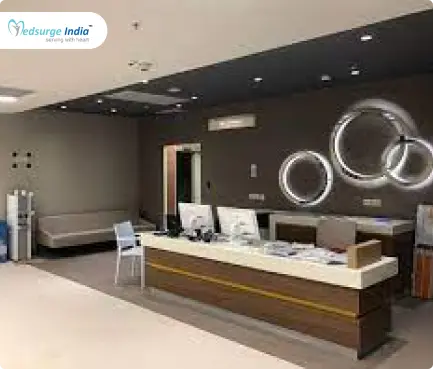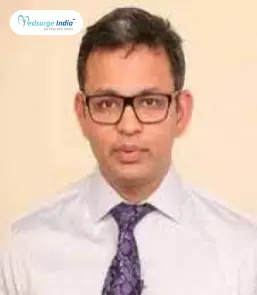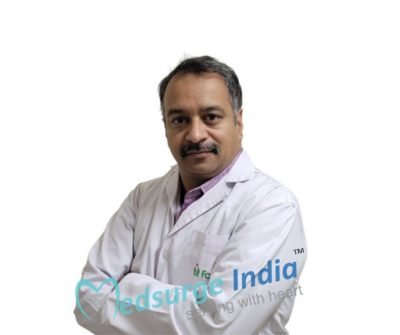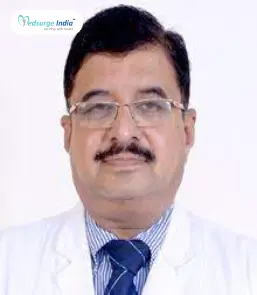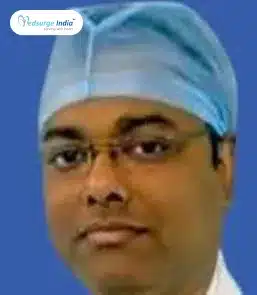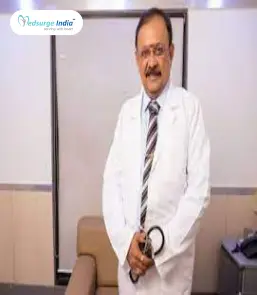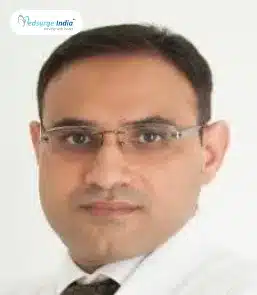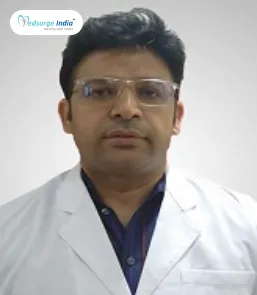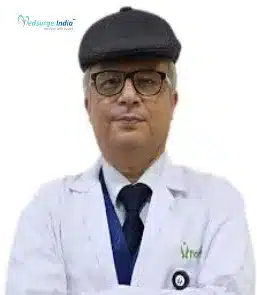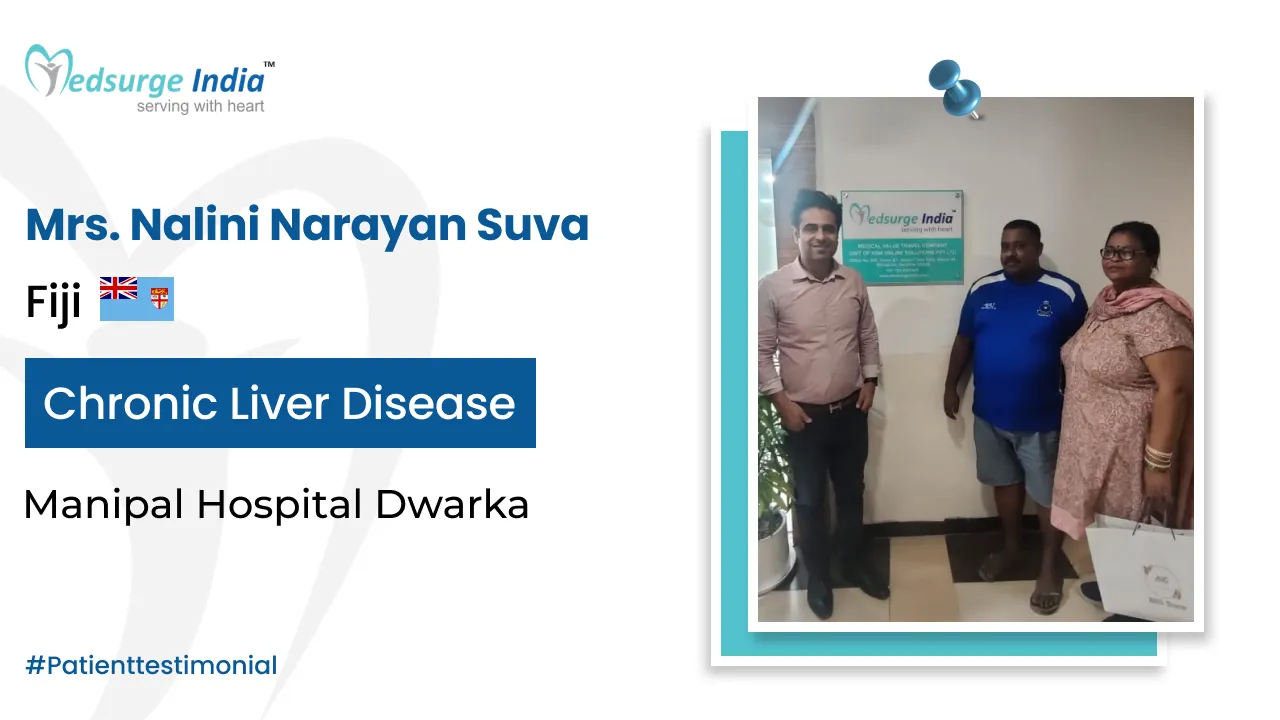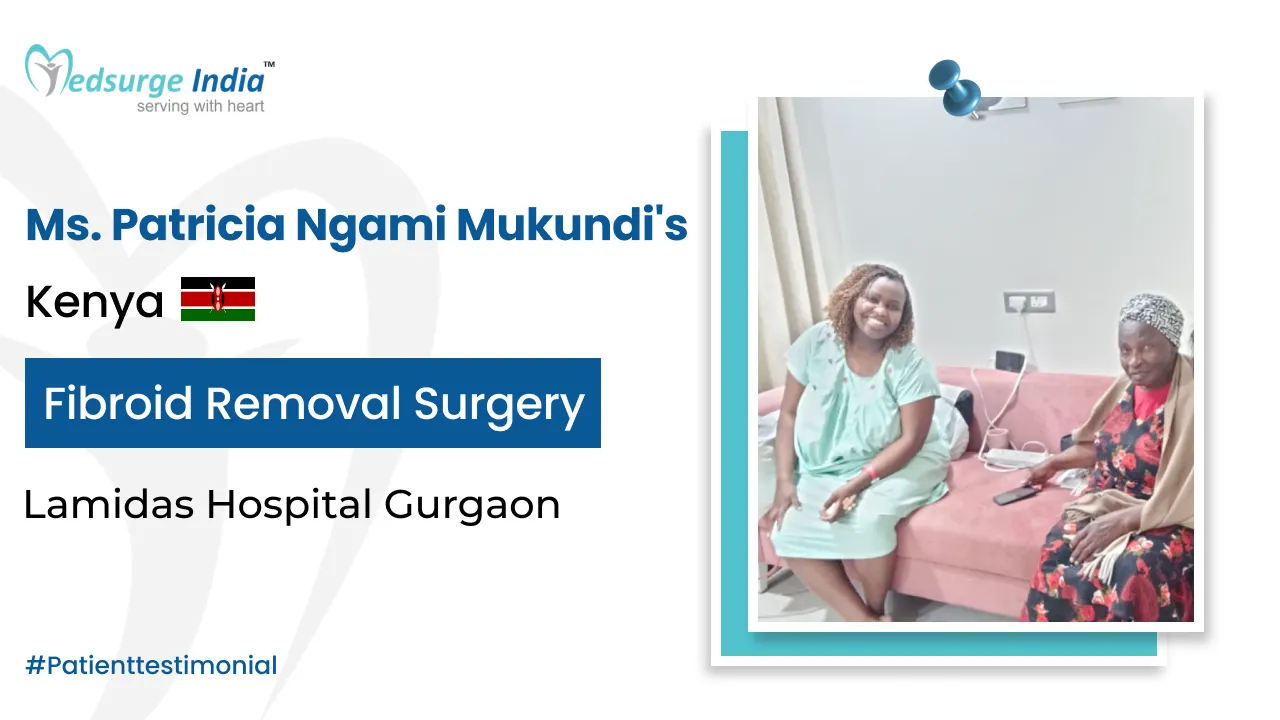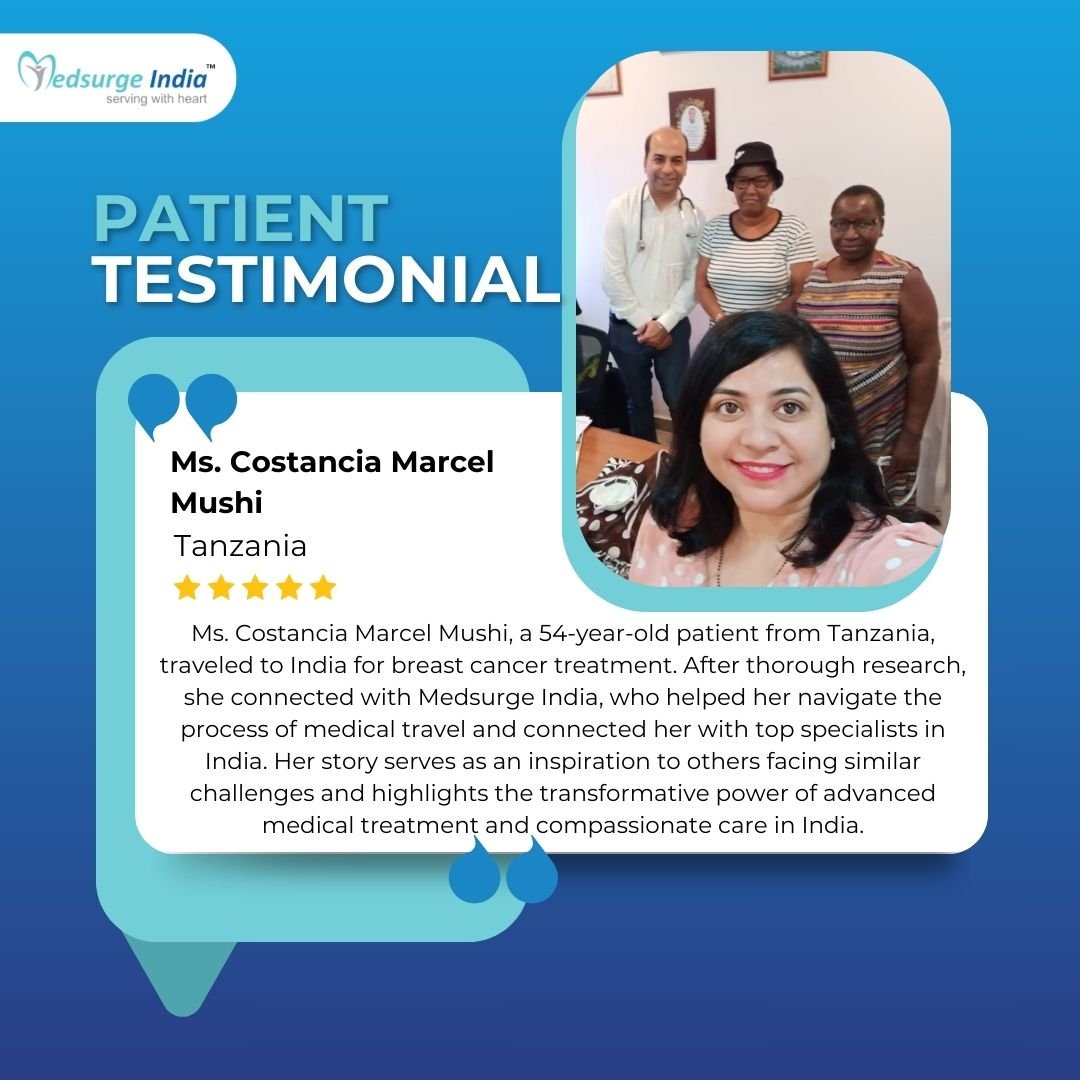
Angioplasty is a procedure performed to open blocked arteries caused by plaque deposits. If the blockage is minor, the problem can be resolved by repeatedly inflating the balloon to compact the plaque against the arterial wall and regulate blood flow. Coronary angioplasty is used to treat coronary artery disorders like unstable angina and spontaneous coronary artery perforation.
During the procedure of balloon angioplasty in India, a catheter with a tiny balloon is carefully guided through the artery to the obstruction, then inflated to expand the opening and enhance blood flow to the heart. A stent is usually implanted during the treatment to maintain the artery open after the balloon is deflated and removed.
Balloon Angioplasty cost in India is quite affordable. The patient must spend two days in the hospital and 12 days out of the hospital. The entire cost of treatment is determined by the diagnosis and facilities chosen by the patient.
What Is Angioplasty?
Angioplasty, commonly known as balloon angioplasty in India, is a surgery that opens arteries to allow more blood to flow through. This minimally invasive method is used by healthcare providers in constricted spots in arteries where plaque makes the space inside an artery too narrow or blocks it.
People with coronary artery disease or who had a heart attack may require coronary angioplasty. Moreover, angioplasty is also done in various regions of the body where arteries are narrowed or blocked, such as the neck, arms and legs, kidneys, and pelvic. Angioplasty permits more blood to flow through an artery that has become too narrow or has become clogged with plaque. This indicates that following angioplasty, the organ that the artery reaches will have a better flow of blood.
Plaque is composed of cholesterol, calcium, and other elements found in your blood. It might constrict or completely block your arteries over time. When this occurs, some portions of your heart do not receive enough oxygenated blood.
Angioplasty opens up the blocked section of the artery, allowing more blood to flow through. It is also called percutaneous coronary intervention (PCI).
Balloon Angioplasty in India is used by doctors to:
- Reduce chest pain caused by coronary artery blockages: Angina is the medical term for this type of pain. There are various types of angina. Such certain types of diseases are treated with angioplasty.
- Limit damage to the heart during or immediately following a heart attack: Angioplasty is an emergency treatment in this scenario.
Ballon Angioplasty Cost in India
The cost of Ballon Angioplasty in India starts from USD 3700. Note that the given amount that is given is the only price that applies to the treatment; further fees may be incurred depending on a number of variables.
Ballon Angioplasty Cost in Different Cities in India
| Cities | Starting Prices |
| Delhi | USD 3700 |
| Mumbai | USD 3800 |
| Kolkata | USD 3700 |
| Hyderabad | USD 3700 |
| Chennai | USD 3700 |
| Gurgaon | USD 3900 |
| Noida | USD 3700 |
| Bangalore | USD 3700 |
Reminder: The cost and treatment options for Ballon Angioplasty Cost in India may differ based on the patient’s preferences and other factors.
Factors That Can Affect Ballon Angioplasty Cost in India
Several factors can also affect the cost of Ballon Angioplasty in India Here are some of the factors that can affect Ballon Angioplasty Cost in India:
- Medication costs.
- Patient Condition.
- Duration of treatment.
- Geographical location.
- Hospitalization expenses.
- Government policies and subsidies.
- Medical tourism packages.
- Hospital reputation and infrastructure.
- The expertise and experience of medical professionals.
- The type and frequency of diagnostic procedures.
- The choice of treatment modality.
Ballon Angioplasty Cost in India offers exceptional medical services and facilities to patients who come for treatment in India also their facilities rival those of well-known healthcare centers worldwide. Accommodation, meals, and transportation expenses are also covered.
With the experience of extremely skilled medical professionals, we at Medsurge India guarantee that patients will obtain the most reasonable balloon angioplasty Cost in India. Furthermore, a foreign patient can save up to 30-40% of the cost in India when compared to their native countries.
What are the Common Angioplasty Procedures Used in Combination with Balloon Angioplasty?
- Drug-eluting stents: Notably treated stents that slowly release particular medication into the walls of the uterus when it’s in place.
- Directional atherectomy: A tiny rotating blade used to eliminate and cut out fat deposits in the body.
- Rotational atherectomy: A diamond-studded drilling apparatus to conquer the congestion.
- Intracoronary radiation: After balloon angioplasty, irradiation is completed from the artery to reduce restenosis.
Get Free Cost Estimation
Procedure
How Balloon Angioplasty Procedure is Performed?
Before the Procedure
- Your physician will examine you physically.
- Your medical history will also be evaluated.
- If you are allergic to iodine or shellfish, you should inform your healthcare provider because the iodine-based dye will be injected into you.
- Diagnostic testing will be performed.
- Preliminary blood tests will be carried out.
- Some medications may have to be stopped.
- You must stop eating 8 to 12 hours before the procedure.
- If you need insulin, you will need to adjust your dosage.
- You will be asked to stop smoking and drinking before and after the procedure
During the Procedure
- Depending on how many arteries are blocked, the procedure may take 30 minutes or longer.
- The surgery is carried out by a cardiologist. To monitor your heart, small electrode pads are placed on your chest.
- To insert a small tube called a catheter into an artery, a minor incision is made in the shoulder or arm.
- The catheter consists of a small balloon and a stent through which an iodine-based dye is administered and X-rays are taken.
- The X-Rays show the areas of congestion as well as how thin the artery became.
- The balloon is inflated, and the stent is opened and pushed against the artery walls.
- Back-up photographs are taken to determine how blood flows from the newly expanded artery.
- The incision is made after obtaining normal blood circulation.
After the Procedure
- If your surgery is not an emergency, you may just need to stay in the hospital for one night.
- You will be given blood-thinning medicine.
- You might have to take aspirin for the rest of your life.
- Your therapy may persist for a year.
- Drink plenty of water to wash out the iodine-based dye.
- Lifting heavy goods and intense activities should be avoided for at least 5 days unless otherwise advised.
- After the operation, you may be able to return to regular work within a week.
If you’re contraindicated for Balloon angioplasty, Coronary artery bypass surgery might be a better alternative for you.
What Are the Risks and Complications Associated with Balloon Angioplasty?
The rate of risks and complications depends on factors such as your age, general health, and if you’ve had a heart attack. Just like all surgical procedures, there are complications also involved in balloon angioplasty, the dangers of severe issues listed below are modest:
- Bleeding or bruising where the catheter was inserted
- Damage to artery
- Allergic reaction to a contrast agent
- Excessive bleeding needing transfusion
- Heart attack
- Stroke
- Kidney problems
Suggestion
Following the procedure, you must maintain a healthy heart by:
- Stop smoking
- Exercise routinely
- Maintaining a healthy diet while lowering cholesterol levels
- Control of diseases such as hypertension and diabetes.
Recommended Read: Medical Treatments, Types, and Procedure of Balloon Angioplasty
The Most Important Frequently Asked Questions
Q: What Will Be the Advantages of Balloon Angioplasty?
A: Following Balloon angioplasty, patients encounter:
- Increased blood flow through the coronary artery
- The decline of symptoms of Cardiovascular Disease, allowing them to perform things more
- Increased likelihood of living after a heart attack
- Loss of chances of getting another heart attack.
Q: What Is the Function of the Balloon in Angioplasty?
A: Once the balloon is inflated, it compels the cholesterol plaque on the walls of the artery, paving the method of ordinary blood circulation.
Q: What’s Cholesterol?
A: it’s a thick and hard material made from cholesterol, calcium, muscle tissues and, connective cells that collect and block the arteries over time.
Q: What Is a Stent?
A: A stent is a small tube to maintain the blood vessels flowing. They can be made of two types:
- A durable stent Made from wire mesh or cloth
- A medicinal coated stent Made from a distinct dissolvable material, That’s consumed by the body
Q: What’s a Stent Needed Within My Operation?
A: A stent helps preserve the normal flow of blood from the artery to stop additional clogging that could result in chest pain or heart attack.
Q: How Long Can I Live with a Stent?
A: Using a bare-metal stent, it requires over a year following operation. Medication drug-eluting can go around 4 or five decades.
Q: Can There Be a Threat at with a Stent?
A: Around 1% – 2% might have danger in using a blood clot at the location where the stent is retained. This risk is greatest during the first few weeks following the operation.
Q: I’m Contraindicated for Balloon Angioplasty, Is There Another Option?
A: Your health care provider will suggest a Coronary artery bypass operation for you.
Q: How Long Is the Surgery?
A: It takes approximately 30 minutes or more depending on the number of arteries have to be unblocked.
Q: How Much Time Period I Have to Stay in the Hospital?
A: You want only an overnight stay but if you have complications, then it is going to take longer.
Q: How Powerful Is Balloon Angioplasty?
A: Patients undergoing Balloon angioplasty have a 90% success rate.
Q: Could Prevent Arteries After Surgery?
A: 30 – 40 percent of individuals with successful operation experience continuing narrowing. Adding a stent within the artery can lower the bronchial congestion.
Q: How Soon Can I Resume Normal Activities?
A: You will have the ability to restart 1 week following the operation.
Q: Is There Anything I Need to Know After Surgery?
A: Maintaining a healthy lifestyle with regular exercise and controlling any condition like diabetes is important. Additionally, smoking ought to be stopped.
Q: When Can I Travel After Surgery?
A: If you had a heart attack having significant complication and has been worked, flying will be permitted at least once 2 weeks of operation supplying you’re stable. When it’s an operation with a stent, then you could be permitted one week following the operation. Obviously, flying ought to be scheduled in adviser with your Cardiologist.
Q: Do I Want to Take a Yellow Fever Vaccination Certificate Once I Travel to India?
A: Yes. If you are traveling from Africa, South America, or other areas where yellow fever is found. Click Here to confirm the list of states. Both adults and children will need to take the certification.
Q: Can I Want Oral Polio Vaccination Certification?
A: All travelers from Afghanistan, Pakistan, Kenya, Ethiopia, Nigeria, Somalia, and Israel should carry a Cosmetic Polio Vaccination (OPV) Certification which must be obtained not earlier than 6 months prior to entrance. This principle applies to both adults and kids.
Q: What Are the Eligibility Requirements for a Medical Visa to India?
A: If you’ve got a valid passport and visa and are looking for medical care in a reputed and recognized hospital in India, then it is possible to make an application for a medical visa to India. Up to two attendants that are blood relatives may accompany the individual under different attendant visas.
Q: Are the Hospitals on Your Panel Globally Licensed?
A: The Joint Commission International (JCI), which will be a US-based service, awards certification to global associations that satisfy the strict criteria set forth by the commission. In Medsurge India, we’re pleased to associate with many JCI licensed Indian colleges on our board.
Q: When Is It Safe to Take a Long Flight After Treatment?
A: Different airlines have varying policies on patients having open-heart surgery or minimally invasive surgery. You need to wait at least 4 months following the operation and consult with your physician for a very long flight. Also, familiarize yourself with the flying security rules of your airline weeks prior to travel.
Top Hospitals for Balloon Angioplasty in India
Top Doctors for Vascular Surgery
Dr. Rajah V Koppala
Consultant
Experience: 28 years of experience
Apollo Spectra Hospital, Alwarpet, Chennai
Chennai, India
Dr. Tapish Sahu
Head of Department
Experience: 10 years of experience
Manipal Hospitals Dwarka, Delhi
New Delhi, India
Dr. Amish Mhatre
Senior Consultant
Experience: 10 years of experience
Fortis Hospital, Mulund, Mumbai
Mumbai, India
Dr. Vishal Sheth
Senior Consultant
Experience: 14+ years of experience
Narayana Multispeciality Hospital, Rakhial, Ahmedabad
Ahmedabad, India
Dr. Venkatesh Reddy
Consultant
Experience: 26 years of experience
Manipal Hospital (Old Airport Road) Bangalore
Bangalore, India
Dr. Balaji V
Senior Consultant
Experience: 22 years of experience
Apollo Hospitals, Greams Road, Chennai
Chennai, India
Dr. C. Chandra Sekhar
Consultant
Experience: 25 years of experience
Apollo Hospitals, Jubilee Hills Hyderabad
Hyderabad, India
Dr. Amit Chaudhary
Senior Consultant
Experience: 15 years of experience
Asian Institute of Medical Sciences, Faridabad
Faridabad, India
Dr. Lawish Agarwal
Consultant
Experience: 16 years of experience
Medanta – The Medicity, Gurgaon
Noida, India
Dr. Subrammaniyan S R
Consultant
Experience: 26 years of experience
Apollo Spectra Hospital, Chennai
Chennai, India
Dr. Sumanth Raj KB
Consultant
Experience: 19 years of experience
Manipal Hospital Millers Road formerly Vikram Hospital Bangalore
Bangalore, India
Dr. P C Gupta
Director
Experience: 25 years of experience
Care Hospitals, Banjara Hills, Hyderabad
Hyderabad, India
Dr. Virender Singh Sheorain
Consultant
Experience: 15 years of experience
Medanta – The Medicity, Gurgaon
Gurgaon, India
Dr. Suhail Naseem Bukhari
Director
Experience: 18 years of experience
BLK Super Speciality Hospital, New Delhi
New Delhi, India
Dr. U Vasudeva Rao
Consultant
Experience: 42 years of experience
Manipal hospitals Life’s On, Jayanagar
Bangalore, India
Dr. Digvijay Sharma
Consultant
Experience: 21 years of experience
Fortis Hospital Delhi Shalimar Bagh
New Delhi, India
Dr. Raghavendran Radhakrishnan
Consultant
Experience: 21 years of experience
Prashanth Multi Speciality Hospital Chennai
Chennai, India
Dr. Rajiv Parakh
Chairman
Experience: 21 years of experience
Medanta – The Medicity, Gurgaon
Gurgaon, India
Dr. Rajesh S
Consultant
Experience: 12 years of experience
M.S. Ramaiah Medical Teaching Hospital, Bangalore
Bangalore, India


